Past WCO Grant Recipients
Learn more below about some of the World Council of Optometry (WCO) Grant Program projects that have recently been funded by the World Optometry Foundation (WOF).
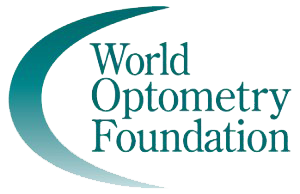
Learn more below about some of the World Council of Optometry (WCO) Grant Program projects that have recently been funded by the World Optometry Foundation (WOF).
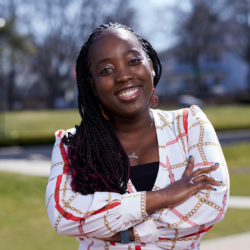
Dr. Araba Otoo completed her grant project with Cherish Eyesight & Vision Inc. (CEV), the Vision Tales Project, to enhance public awareness of eye health and preventable blindness through a comprehensive digital campaign and targeted educational materials. This project included the creation of engaging content and active participation in key conferences to disseminate crucial information. Learn more.
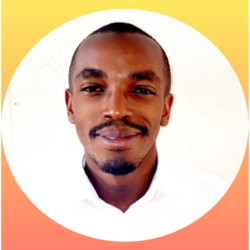
Optometrist Jerry Weboya completed his grant project with GAF Eye Health Foundation with the general objective of reducing blindness or visual impairments due to preventable and treatable causes in targeted remote communities in the Bugisu sub-region of Uganda, Africa with support from the WCO Grant Program through the World Optometry Foundation.
Eye health camps were held both in the community and in schools, as well as a radio talk show about the roles of optometrists in eye care delivery systems. Learn more.
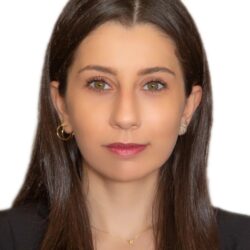
Mrs. Rana Diab completed her grant project in Beqaa, Lebanon with an initiative aimed to bridge the gap in vision care for Syrian refugee children. The project focused on conducting vision screenings, providing spectacles, and promoting awareness about vision health. The project’s three primary objectives were as follows: conducting comprehensive vision screenings for 600 Syrian refugee school children, providing spectacles through local optical shop partnerships, and raising awareness about the importance of vision health. The project timeline spanned from April 1–May 14, 2024, with preparation taking place from April 1–14, vision screenings from April 15–30, and spectacle provision from May 1–14. Several outcomes were achieved through this project, including improved vision health, increased spectacle accessibility, community empowerment, and heightened advocacy and awareness efforts. The project’s success highlights the significance of ongoing initiatives in improving the well-being and opportunities of vulnerable populations. Through screening, providing spectacles, and raising awareness, the project endeavored to enhance the lives and educational opportunities of Syrian refugee children in Beqaa, Lebanon.
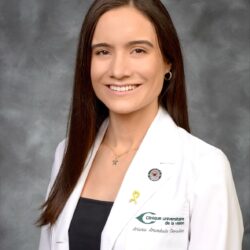
Dr. Ariana Arambulo Cevallos completed her grant project in Pereira, Colombia, as part of the Community Optometry Residency she was enrolled in at the University of Montreal. The project consisted of a three-month teaching internship at Areandina University’s department of Optometry, where she worked among local teachers and preceptors in the training of future optometrists. She used her clinical and teaching competencies and shared her background in public health to promote and enhance visual and ocular health in the Colombian population. She was a clinician pre-clinic laboratories and general and specialty clinics in the department of Optometry and participated in workshops with other healthcare professionals from Areandina University. This project opened the opportunity to continue doing future collaborative work between the two universities.
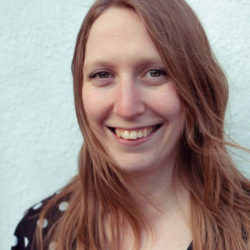
Dr. Valérie Proulx is a Candidate, Residency in Community Eye Care at the Université de Montréal, Canada and finished a grant project in Vietnam in 2020. Dr. Proulx utilized her teaching internship in the Department of Optometry of Hanoi Medical University (HMU) in Vietnam and contributed to the training of future Vietnamese optometrists by organizing and taking part in instructional academic activities. Understandably, due to COVID-19 her work in Vietnam had to end earlier than expected.
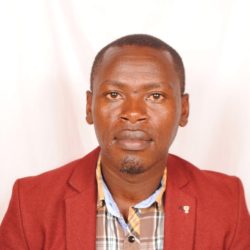
Dr. Daniel Mochere completed his fellowship in 2019. The objective of the fellowship was to equip Dr. Mochere with the necessary low vision and contact lens skills in order to start a unit to reduce the burden on people south west of Kenya travelling over long distances to seek the services in facilities where the service is available. Most contact lenses are given in various optical shops but they mostly give soft contact lenses. Specialty contact lenses are only given in few clinics within the city. These services are now closer to the people within south west Kenya.
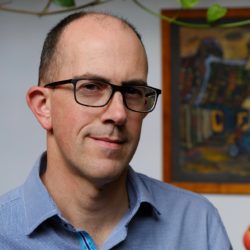
Dr. Timothy Fricke of Melbourne, Australia was granted a fellowship to support emergent optometry programs in Vietnam. Dr. Fricke has been mentoring eye care educators in Vietnam since 2008. Given the size of the Vietnamese population, the speed of development of optometry throughout the country, and potential for regional leadership it is critical for optometry to be successful in Vietnam. Dr. Fricke’s fellowship supported the delivery of evidence-based binocular vision education in optometry in Vietnam.

Soon after graduating from the doctoral degree at the University of Auckland, New Zealand, Nabin Paudel, Ph.D. applied for the World Council of Optometry (WCO) Teaching fellowship to teach pediatric optometry and visual electrophysiology to the undergraduate optometry students of Nepal. His proposal was approved by the WCO Grant Program Committee and Dr. Paudel joined the B P Koirala Lions Centre for Ophthalmic Studies, Institute of Medicine, Nepal, as a teaching fellow in August 2016.
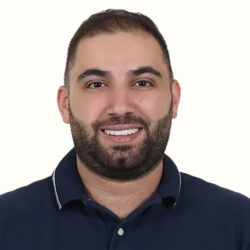
Ameer Abou Adela
President, Vision Care Association
Vision Care Association (VCA), a WCO country member in Lebanon has been advocating for a change in optometry education offered by Lebanese universities as it was clear that the Lebanese optometry programs had the opportunity to reach the level needed to offer competencies required for practicing optometry as per the World Council of Optometry (WCO) definition of optometry and as per the World Health Organization (WHO) eye care competencies framework. VCA has realized that such an endeavour would not have been achieved without support from experienced educators and external funding due to the economic crisis facing Lebanon post-COVID and the political instability that affected all sectors especially health services and education. In order to ensure the curriculum competencies offered by optometry programs in Lebanon are aligned with WHO eyecare competencies and fulfill the WCO definition of optometry, a proposed 1-week workshop hosted by American University of Science & Technology (AUST) and included other universities in addition to education policy makers and eye care stakeholders with two mentors was approved for the WCO Education Mentor Grant.
One of the mentors was Dr. Yazan Gammoh, Associate professor of Optometry at al- Ahliyya Amman University who introduced the Optometry Curriculum Domains and Competencies from various regional organization of optometry and WHO eye care competencies framework, made the educators aware of the global optometry education resources, and highlighted on the current status of optometry education in the Eastern Mediterranean Region (EMR). Also, he introduced a pilot of the WCO Curriculum competencies and domains to allow a better understanding and implementation of the WCO optometry curricula competencies in emerging programs and developing countries. Prof. Vanessa Moodley (Professor in Optometry Department at Kwazulu-Natal University) tackled the following topics: Accreditation schemes & quality assurance in education, students’ evaluation Strategies for Theoretical, Practical and Clinical Courses. She provided an update on the historical development of optometry education in Africa. Furthermore, she laid the route and pathways that Lebanese universities can go through to implement changes in curricula offered to be aligned with the WCO definition of optometry. In addition, Dr. Lina Hawat, a professor in ethics volunteered to conduct a workshop on ethics in healthcare including optometry withing the context of the Lebanese culture. Once all the activities have been accomplished, all participating universities and stakeholders have pledged to collaborate to improve and standardize optometry education in Lebanon.